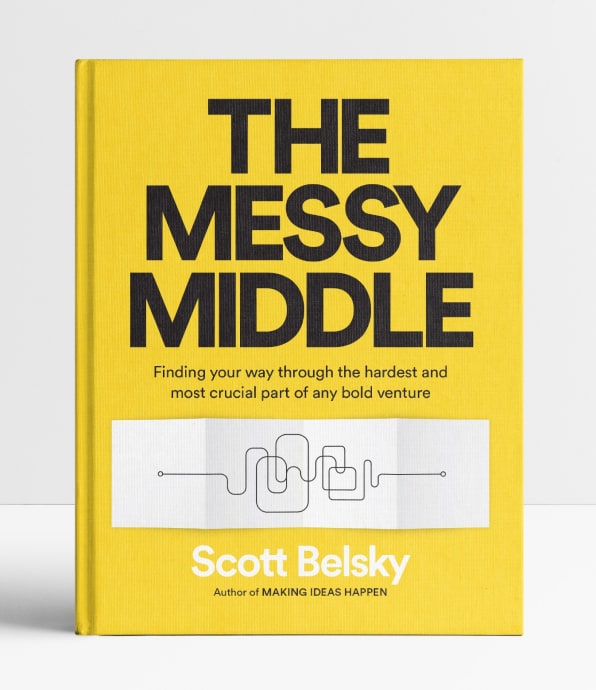#CareerAdvice : #JobChange – 8 Warning Signs that You’re in a #CareerRut (and how to get out)…Do you Secretly Browse #JobListings and No Longer Look Forward to your Company’s Annual Conference? It Might Be Time to Make some Changes.
A rut is never a fun place to be in, but it happens to nearly all of us at some point in our careers. Perhaps you’ve been working in a job for a while, doing the same tasks, working with the same people in the same office every day. Suddenly you wake up one morning and realize you’re no longer inspired by your job. You wonder if it’s time to move on, or if you should stick with it and hope things get better.
1.YOU’RE BORED
“Most career ruts are caused by a lack of challenge, resulting in comfort, complacency, and boredom,” says career-change coach Lisa Lewis. If your current job isn’t presenting opportunities for you to learn and grow, boredom can quickly set in.
It’s often for this reason that a career rut occurs after someone has reached a level of success. After a certain amount of time in that position you desired throughout your entire career, you feel like you’ve mastered it and aren’t finding it challenging anymore. “Learning is one of the biggest motivations for many people in the workforce,” says Lewis. Finding opportunities to learn other areas of the business or to learn a skill outside of your job can help you fight a boredom-induced rut.
2. YOU DREAD MONDAYS
It’s normal to feel the occasional “case of the Mondays.” While we all wish that we jumped out of bed every Monday morning feeling energized to get to the office, that’s not the case for many people. But if you’re regularly finding yourself deep in the Sunday blues, feeling angry, lethargic, and wanting to call in sick every Monday is a good sign that you’re stuck in a rut.
Like this Article ? Share It !You now can easily enjoy/follow/share Today our Award Winning Articles/Blogs with Now Over 2.5 Million Growing Participates Worldwidein our various Social Media formats below:
FSC LinkedIn Network: www.linkedin.com/in/fscnetwork
Facebook: http://www.facebook.com/pages/First-Sun-Consulting-LLC-Outplacement-Services/213542315355343?sk=wall
Google+: https://plus.google.com/115673713231115398101/posts?hl=en
Twitter: Follow us @ firstsunllc
Question: Want the ‘the best/current articles/blogs on the web’ on Job Search, Resume, Advancing/Changing your Career, or simply Managing People?
Answer: Simply go to our FSC Career Blog below & type(#career, #leadership, #life) in Blog Search: https://www.firstsun.com/fsc-career-blog/
What Skill Sets do You have to be ‘Sharpened’ ?
Continue of article:
3. YOUR WORK IS SUFFERING
A common sign of a career rut is when your work starts to slip. You start missing deadlines and making mistakes that you never used to make. You disengage, start to lose confidence in your work, and regularly bcc or cc more people than necessary in your emails, and pass blame onto others for your mistakes.
“When you’re in a rut, you engage in self-sabotaging behaviors to protect yourself, and tend to avoid dealing with your lack of fulfillment,” says career consultant Eli Howayeck, founder and CEO of Crafted Career Concepts in Milwaukee.
4. YOU’RE ACTING COMPLACENT
Do you find yourself being apathetic in work conversations where you previously would have had a strong opinion? Feeling complacent; “phoning it in” or looking for faster, easier ways to get work done without really caring too much about the end result, or without committing your attention or energy to the task, is a clear sign that you’re in a career rut.
5. SOMEONE HAS ASKED “ARE YOU OKAY?” MORE THAN ONCE THIS WEEK
As much as you may think you’re faking your engagement well, inevitably someone on your team, or a manager, will ask, “Are you okay?” “You can’t get away with acting different from the way you feel for very long,” says Howayeck. You may even find yourself avoiding your manager for fear of being “found out” that you’re miserable.
6. YOU FEEL PHYSICALLY EXHAUSTED
Being in a career rut can feel like you’re trudging through mud every day, just trying to get to the end of the workday. You feel that you require a greater amount of energy to get prepared for tasks that you used to accomplish easily. Being in a rut can be exhausting–perhaps even more exhausting than being super busy in a job that you love and find rewarding. “We all have an innate need to be challenged and learn. When we are in roles that no longer provide growth opportunities, it can feel as if our energy is being drained in the same way as it might if we’re completing a big project,” says Lewis. Your body begins to feel tired, and your brain can’t understand why you’re not taking on new challenges, so it gets tired too, causing you to feel lethargic and depleted.
7.YOU DON’T LOOK FORWARD TO THINGS YOU USED TO
Is there an annual conference in your field that you regularly attend that you would normally sign up for as soon as registration opens but that you’ve been delaying looking at for months? Losing excitement about making future plans for things you enjoyed doing in the past is a sign that you are feeling stuck.
8. YOU BROWSE THE JOB POSTINGS
When you’re in a rut, it’s common to find yourself drawn to job postings. Surely a new job may seems like a clear path out of your rut. However, Howayeck says looking for a new job is the worst way to start to get out of a rut. “It’s like showing up to prom without a date in your workout clothes. No one is going to ask you to dance, and you won’t feel ready to ask anyone to dance, either,” he says.
Instead, Howayeck says to examine your current situation and see if there are any opportunities internally that would interest you. If there truly are none, try to create your own opportunities by looking outside your current job. Take a class in a subject you’re interested in or volunteer at a nonprofit doing something that’s outside of your current job tasks.
HOW TO GET OUT
When you are ready to move on, take an inventory of your strengths, weaknesses, values, and accomplishments and map out a plan to get out of your current situation. “This means cleaning up your personal and professional brand, and most importantly, your belief system around your experience and skills,” says Howayeck. Then, when you’re ready, start to network and verbalize what you’re looking for in the next phase of your career. Taking these steps will help ensure your next leap is not straight into another rut.
FastCompany.com | October 10, 2018










